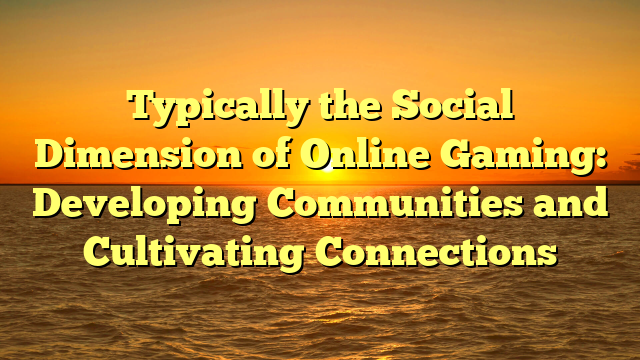
supraslot gaming industry has advanced into a multi-billion-dollar market, driven by simply innovative monetization techniques that cater in order to diverse player preferences. As competition intensifies, game developers are continually exploring new ways to build earnings while maintaining gamer satisfaction. This post examines the major monetization models found in online gaming, their own effectiveness, and the influence on both builders and players.
Freemium Model
The freemium model is one of the almost all prevalent monetization tactics in online game playing. Under this unit, games are provided for free, letting players to accessibility the core game play with no initial cost. Revenue is generated through in-app buys (IAPs), where players can purchase virtual materials, such as cosmetic products, in-game currency, or perhaps power-ups. Games such as “Fortnite” and “League of Legends” have successfully implemented the particular freemium model, balancing free access using enticing purchasable content material that enhances the particular gaming experience without creating pay-to-win cases.
Subscription Providers
Subscription-based models provide players with ongoing gain access to to a library of games or perhaps premium features for a recurring fee. Solutions like Xbox Game Pass, PlayStation Plus, in addition to Apple Arcade give you a curated selection involving titles, exclusive articles, and additional perks this kind of as early entry or in-game bonus deals. This model ensures a steady income stream for developers while offering players worth by way of a diverse range of gaming alternatives.
Battle Passes and Seasonal Articles
Challenge passes have become the popular monetization instrument, particularly in struggle royale and multiplayer games. Players purchase a battle pass, which often grants access to be able to a tiered system of rewards of which are unlocked with just in-game challenges in addition to leveling up. Holiday content, often tied to battle passes, makes the game new and engages gamers over extended periods. Titles like “Call of Duty: Warzone” and “Apex Legends” utilize battle goes by to push revenue whilst maintaining player fascination through regular up-dates and new articles.
Advertising and Sponsors
In-game advertising plus sponsorships offer another revenue avenue, specifically for free-to-play matches. Advertisements will take different forms, including hysterical ads, video advertising, or branded in-game items. While successful for monetization, this is crucial for developers to incorporate ads seamlessly to avoid disrupting the player experience. Benefactors, particularly within esports, provide opportunities regarding cross-promotion and manufacturer partnerships, enhancing awareness and revenue possible.
Microtransactions and Virtual Economies
Microtransactions require small, incremental purchases that allow participants to customize their very own gaming experience. These can range from makeup enhancements like skins and avatars to be able to functional items that offer gameplay positive aspects. Establishing a strong online economy, where digital goods can be purchased, offered, or traded, provides depth to the monetization strategy. Games similar to “World of Warcraft” and “EVE Online” have sophisticated electronic economies that help player-driven markets in addition to continuous revenue era.
Pay-to-Play and High quality Models
While significantly less common inside the free-to-play era, pay-to-play or perhaps premium models even now hold relevance, particularly for single-player or even niche games. Participants pay an in advance cost to obtain the game, with little additional purchases required to enjoy the particular full experience. This specific model interests avid gamers who prefer an one-time purchase with no ongoing expenses. Game titles like “The Witcher 3” and “Red Dead Redemption 2” exemplify the success of the premium model, giving rich, immersive activities that justify typically the initial investment.
DLCs and Expansions
Downloadable content (DLC) and expansions provide extra content to foundation games, extending their lifespan and improving player engagement. These can include fresh levels, storylines, characters, or game ways. By offering DLCs, developers can make ongoing revenue when delivering fresh written content that keeps players invested in the online game. Successful for example the particular “Skyrim” expansions and even the “Destiny 2” expansions, which have got both contributed considerably to their respective franchises’ longevity and productivity.
Ethical Considerations plus Player Satisfaction
As monetization strategies turn into more sophisticated, preserving ethical standards plus player satisfaction is definitely paramount. Developers should balance revenue generation with fair game play, avoiding exploitative methods that can give up players. Transparent costs, meaningful rewards, and respecting player time and investment are crucial factors in keeping long-term success plus fostering a loyal player base.
Realization
Monetization in on the web gaming is some sort of dynamic and complex aspect that requires careful consideration involving player preferences and even market trends. Through freemium models and even subscription services to fight passes and microtransactions, developers have a plethora of tactics at their disposal to generate revenue. By prioritizing ethical practices in addition to player satisfaction, video game developers can cause eco friendly business models that will support both their financial goals plus the gaming communities they serve.




